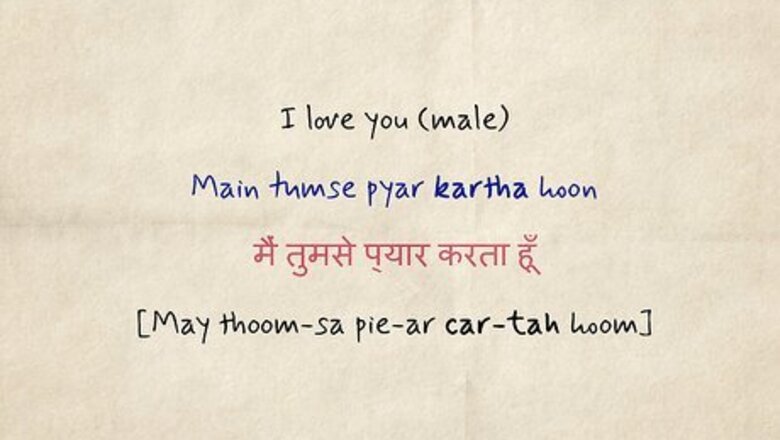
views
- If you’re a man, say “I love you” in Hindi with “Main tumse pyar kartha hoon.”
- If you’re a woman, say “I love you” in Hindi with “Main tumse pyar karthee hoon.”
- Say “I love you, too” in Hindi with “Mai bhee aap se pyaar kartha/karthee hoon”
How to Say “I Love You” in Hindi
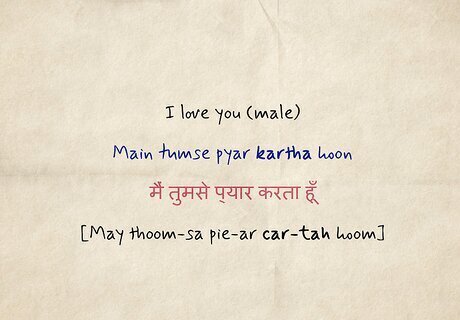
If you’re a man, say, “Main tumse pyar kartha hoon.” In Hindi, words have gender, and the way a man and woman say a word can be slightly different. As a general rule, most masculine verbs in Hindi end with “a,” while most feminine verbs end with “ee.” Thus, if you're a male, you’ll use the masculine verb “kartha” when describing your feelings. Pronounce “Main tumse pyar kartha hoon” as “May thoom-sa pie-ar car-tah hoom.” In Hindi, “Main tumse pyar kartha hoon” is written as “मैं तुमसे प्यार करता हूँ.” Note that this phrase can be used when speaking romantically to a female or expressing love to another man (a brother, son, friend, etc.).
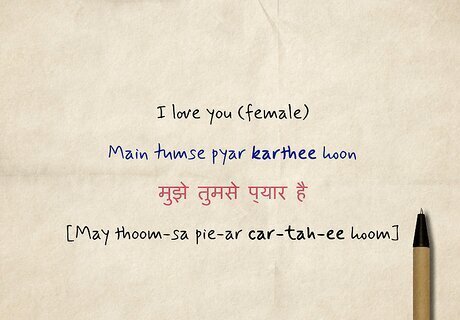
If you’re a woman, say, “Main tumse pyar karthee hoon.” The way you say “I love you” as a female is very similar to how a male says it. Use the feminine verb “karthee” rather than the masculine “kartha.” Pronounce “Main tumse pyar karthee hoon” as “May thoom-sa pie-ar car-tah-ee hoom.” In Hindi, “Main tumse pyar karthee hoon” is written as “मुझे तुमसे प्यार है.”
How do you say “I love you, too” in Hindi?

Say “Mai bhee aap se pyaar kartha/karthee hoon” to tell someone you love them too. If you tell someone you love them in Hindi, you may receive this phrase in response. That’s because “Mai bhee aap se pyaar kartha/karthee hoon” means “I love you, too.” Use this phrase to reciprocate your feelings or listen for it after telling your sweetheart you love them. “Kartha” is typically used by a man, while “karthee” is usually used by a woman.
Using Related Phrases
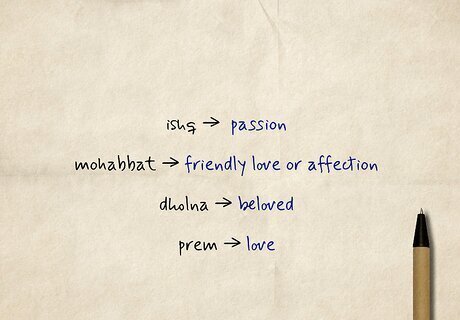
Use different Hindi words for “love.” Similarly to how English speakers use terms like “adoration” and “affection” to describe love, the Indian language also has variations of the word. Replace the word “pyar” in “Main tumse pyar kartha/karthee hoon” to say “I love you” in different ways: “Ishq” means “passion.” “Mohabbat” means a friendly love or affection. “Dholna” means “beloved.” “Prem” is Sanskrit for “love.”

Use “aapse’ when speaking with your elders. Like many other languages, Hindi uses different words for formal and casual situations. “Main tumse pyar kartha/karthee hoon” is the most popular “I love you” phrase as it’s used with close family, friends, and significant others. However, for people who are older than you, authority figures, and people you don't know very well, use the formal term “aapse” in place of “tumse” to show respect. With this substitution, the formal version of “I love you” becomes “Main aapse pyaar kartha/karthee hoon.”

Add “bahut” to say, “I love you very much.” If you really want to express your love for someone, add the word “bahut” before “pyar” in “Main tumse pyar kartha/karthee hoon.” “Bahut” is a Hindi word that means “very much” or “so much.” Pronounce “bahut” as “bout” with a light h sound between the o and u.
How do you ask someone out in Hindi?
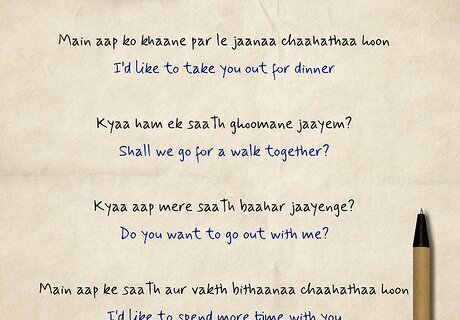
There are a few things you can say in Hindi to ask someone out. If you have serious feelings for someone and are ready to take the next step in your relationship, try using one of these handy phrases to ask them out (just remember to use masculine “a” verbs if you’re a guy and feminine “ee” verbs if you’re a girl): “Main aap ko khaane par le jaanaa chaahathaa/chaahathee hoon.” (“I'd like to take you out for dinner.”) “Kyaa ham ek saaTh ghoomane jaayem?” (“Shall we go for a walk together?”) “Kyaa aap mere saaTh baahar jaayenge?” (“Do you want to go out with me?”) “Main aap ke saaTh aur vakth bithaanaa chaahathaa/chaahathee hoon.” (“I'd like to spend more time with you.”) Note that Indian dating and courtship are traditionally more structured and formalized than Western dating and may involve interactions being arranged by family members. However, in recent years, young Indians have begun to adopt Western-style attitudes to dating. To avoid embarrassment, ask about your potential partner’s customs for dating before you ask them out.















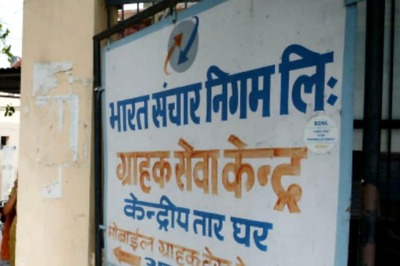
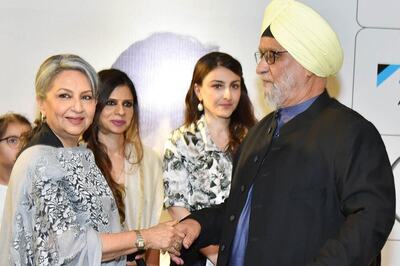

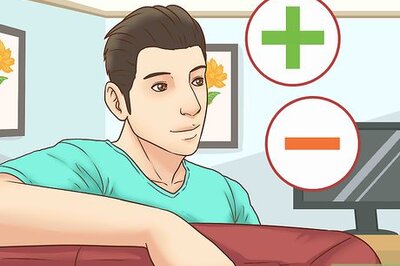
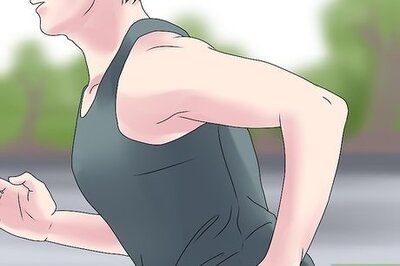
Comments
0 comment